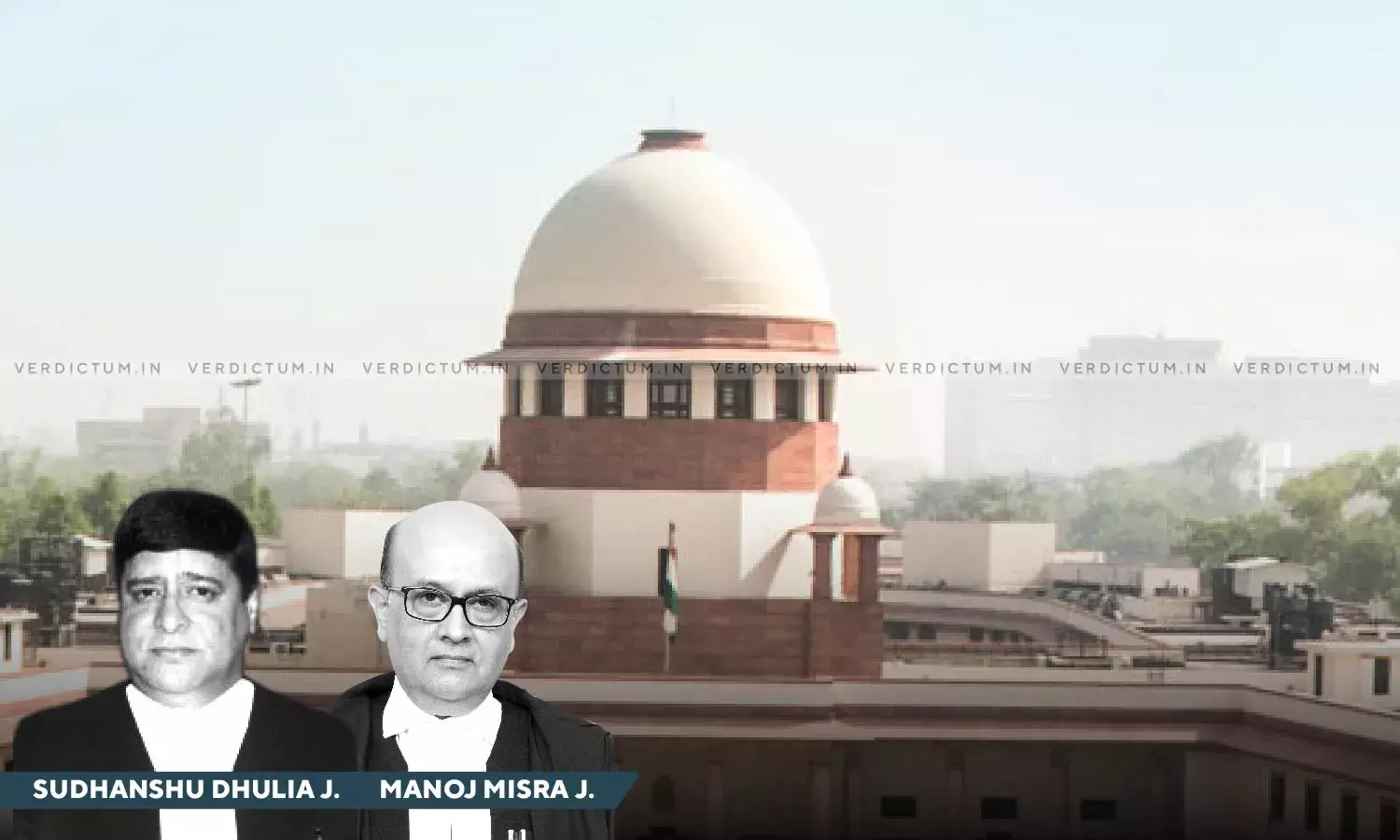Complaint Cannot Be Dismissed For Non-Appearance If The Complainant Has Led His Evidence- Reiterates SC

The Supreme Court has reiterated that where the complainant’s evidence has been recorded and the case is to be decided on merits, the complainant’s presence is not necessary under Section 256 of the Criminal Procedure Code, 1973 (CrPC).
The Bench of Justice Sudhanshu Dhulia and Justice Manoj Misra observed that the complainant had already been examined as a witness in the case and further held, “...if the complainant had not appeared to press the application under Section 311 of the Code, the learned Magistrate could have rejected the application under Section 311 of the Code and proceeded with the case on basis of the available evidence. We are, therefore, of the considered view that the learned Magistrate was not justified in straight away dismissing the complaint(s) and ordering acquittal of the accused on mere non-appearance of the complainant.”
Senior Advocate Maninder Singh appeared for the appellant and Advocate Samrat Nigam appeared for the respondents.
In this case, the appeals were preferred against the impugned judgment of the Delhi High Court filed by the appellant against the order of the Metropolitan Magistrate whereby eight Criminal Complaints filed under Section 138 of the Negotiable Instrument Act, 1881 were dismissed for non-appearance of the appellant (complainant).
The issue dealt with by the Court was -
Whether the dismissal of criminal complaints for non-appearance of the complainant even though the complainant’s statement had been recorded and his evidence was closed with a direction to list the matter for recording of defence evidence, was justified or not.
On considering the material on record, the Apex Court noted that it was specifically submitted by the appellant that he had led its evidence, i.e., his cross-examination had been over in the case and thereafter had moved an application under Section 311 of CrPC to summon and examine further witnesses.
The Apex Court interpreted Section 256 of the CrPC and said that where the Magistrate was satisfied that the personal attendance of the complainant was not necessary, he could dispense with the attendance of the complainant and proceed with the case.
“However, we find that neither the High Court nor the learned Magistrate has taken notice of the aforesaid position. Both the courts below thus failed to consider whether in the facts of the case under the proviso to sub-section (1) of Section 256, the court could proceed with the matter after dispensing with the attendance of the complainant.” observed the Court.
Regarding the application moved under Section 311 of CrPC, the Apex Court said that the Magistrate could have rejected the application and proceeded with the case based on the available evidence.
Therefore, the impugned order was set aside, and the prosecution was directed to proceed from the stage where it was when the order of acquittal/dismissal of the complaint(s) was passed and the appeals were allowed.
Cause Title- M/s. BLS Infrastructure Limited v. M/s. Rajwant Singh & Ors.
Click here to read/download the Judgment

